GTI Conference
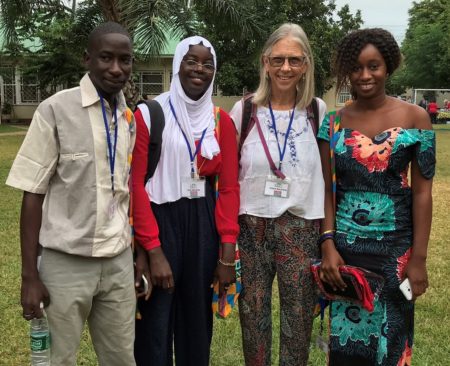
I participated in the Gambia Teachers Institute (GTI) one day conference, with three teachers from my Senior Secondary School in Farafenni – the Agriculture Technical College (ATC). The event was hosted by the Banjul American International School (BAIS), and included various sessions focused on practices for effective teaching, and other skills applicable to Gambian educational contexts. The primary focus of the sessions was on inquiry-based education, improving teaching methods, and promoting the increased use of student centered teaching techniques. GTI directly addresses the needs of Gambia’s growing youth population, promoting inclusive and interactive educational opportunities.
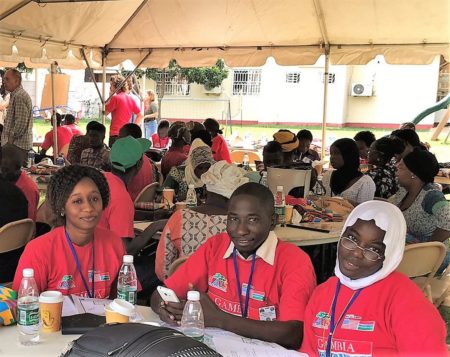
This was the third year the GTI conference was held at BAIS, and the first year that PCVs from all sectors (Education, Agriculture & Health) were invited to bring teachers from their schools. I brought Kumba Jobe, who teaches Science and Home Economics; Gibbi Dem, a Woodworking teacher; and Ida Thorpe, who teaches English and Science. There were 32 schools from all over the country represented, with 142 participants, of which 71 were affiliated with Peace Corps. The attendees from non-Peace Corps affiliated schools were invited because BAIS had a prior relationship with them, and felt they would benefit from the conference.
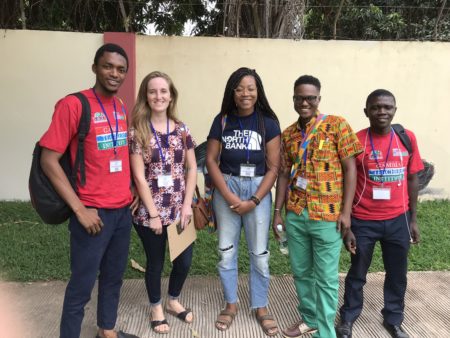
There were fifteen sessions available and each teacher was able to attend three sessions during the day. Everyone received a comprehensive resource manual, that covered all fifteen sessions with detailed outlines, which included lesson plans and ideas for implementation. They also received T-Shirts, notebooks, pens, colored markers, other teaching supplies, in a tote bag. All conference participants are encouraged to return to their schools, and share what they have learned with their colleagues.
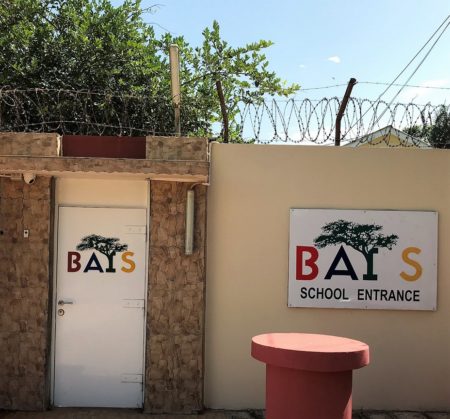
BAIS was originally known as the Banjul American Embassy School, and was founded in 1984 by a small group of American families with support from the US Embassy. In 2016, the name was changed to the Banjul American International School, to reflect the globally-minded curriculum, and diverse international community of students and parents. BAIS continues to maintain a strong relationship with the US Embassy, and receives an annual grant from the US State Department’s Office of Overseas Schools. They are the only independently accredited school in The Gambia, with full accreditation through 2023 by the Middle States Association of Colleges and Schools.
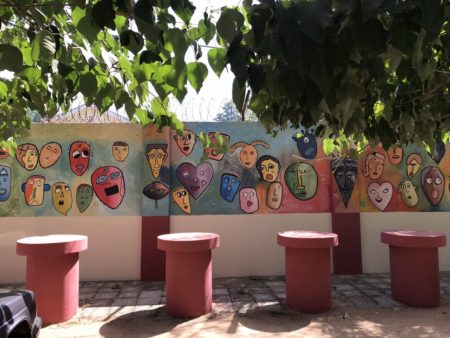
BAIS provides a meaningful, rigorous American curriculum in a global context. In partnership with local and international communities, they empower students to become enthusiastic, creative, lifelong learners who value integrity, cultural diversity, and global responsibility. There are currently 54 students, ages 3 to 14 years, from many countries, with more than one fourth from The Gambia. All children whose parents reside in The Gambia are eligible to apply for admission, and tuition is based upon the grade level of the student. The staff is made up of people from various nationalities, although the majority of the teachers are US or UK trained and certified. All staff undergo continual professional development.
BAIS = Believe! Achieve! Inspire! Succeed!
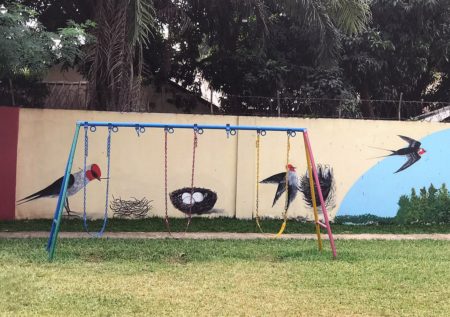
BAIS cultivates a safe, welcoming, supportive, and inquisitive environment to develop the physical, social, emotional, and intellectual capacities of the students. They believe that children need to have the elements of self-confidence and social acceptance in place, before meaningful intellectual development can be achieved. The school uses multi-age and multi-grade classes that change with the population of the school. The school calendar is from September to June, and there are many after school programs to enhance the 180 days of academic instruction.
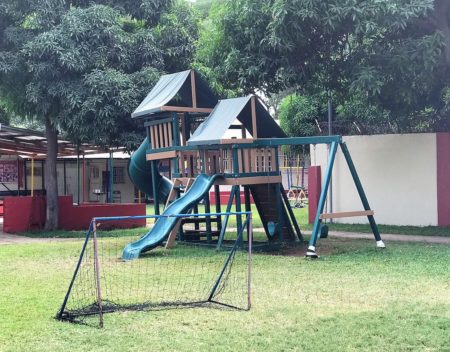
The school is divided into four sections.
- Early Childhood Center includes Pre-K 1 & 2 and Kindergarten
- Primary School Grades 1-5
- Middle School Grades 6-9
- Nebraska Correspondence Grades 9-12
BAIS high school students (Grades 9-12) receive academic support and advising from BAIS teachers, as they complete courses through the University of Nebraska High School. High school students participate in Art, Physical Education, and Music classes with BAIS middle school students, and have opportunities for leadership and community engagement through programs including Student Council and the Service Learning Project.
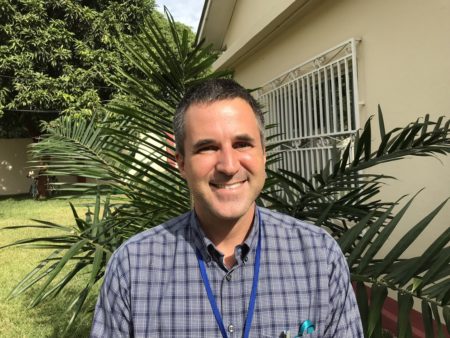
Caleb Steindam welcomed everyone to the conference, and expressed his gratitude to the US Embassy for providing the funding this event facilitated by GTI at BAIS. He said this conference is held to support, acknowledge, and celebrate the work of teachers. He believes that teaching is the most important job in the world, because teachers do more than impart knowledge. They nurture, protect, inspire, and empower children. Teachers shape the values of communities and offer hope and opportunities for a better world in the future.
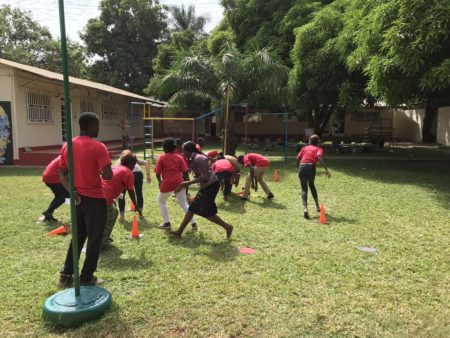
All fifteen workshop sessions were very interactive, demonstrating how to engage the students with hands on activities. The lesson plans and ideas presented in the take home resource manual, describe how to translate the new concepts effectively. Since each teacher only had time to attend three sessions, the resource manual will be invaluable in expanding their knowledge of these new concepts and techniques.
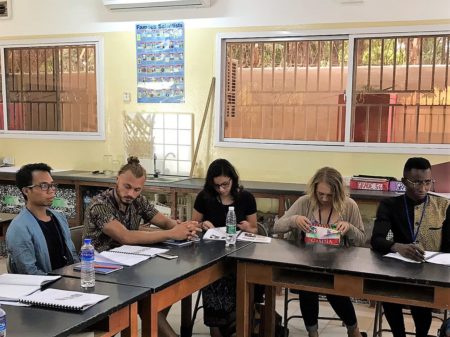
Presented Sessions included:
- Interactive Modeling: Tools for Managing a Student-Centered Classroom
- Improv for the Classroom: Theater Games to Teach Literacy Skills
- Music Theory Made Easy
- Using Music To Enhance Learning with Young Children
- Reading Aloud to Children to Develop Reading
- What is Phonics?
- The Mysterious Egg – An Inspirational Way to Teach Writing
- Growing into Graphs – Bringing Farming into a Lab
- Lab Science Basics – Turn Your Classroom into a Lab
- Number Talk and Mental Math Secrets
- Assessing Physical Education – Wright from the Start
- Curriculum & Community: Service Learning Can Help Your Students be Agents of Change
- Making Children’s Rights Real
- HIV Prevention and Sexual Education
- Emergency First Aid for the Classroom
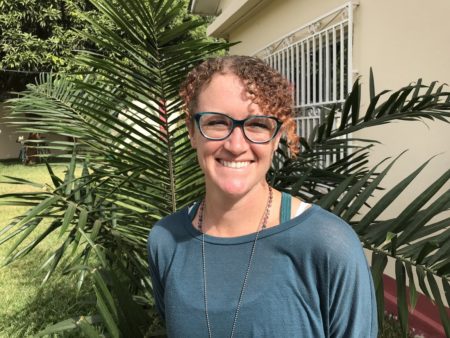
As an Agriculture PCV, I wanted to interview Stephanie and discover how she uses gardening to complement her classroom curriculum. Since gardening and farming are a way of life for many Gambians, incorporating a garden into the classroom, is an opportunity to link course work with the real world. This is Stephanie’s third year at BAIS, designing and teaching hands-on science lessons. She coordinates her classroom instruction with the after school program, and they have created a beautiful productive garden. The students are able to expand their scientific knowledge with practical skills, and then enjoy consuming the fruits of their labors.
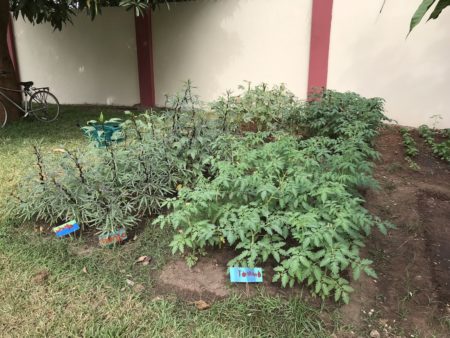
The GTI teacher training conference had a lot to offer Gambian teachers. They were able to observe how an American school is structured, and what is possible when resources are available. Unfortunately, a typical Gambian classroom will have a teacher with 25 to 30 students, no textbooks, or teaching materials provided by the school. Gambian schools are currently not well funded, teacher salaries are low, classrooms and outside play areas are not well maintained, and teachers are transferred regularly, making it difficult to establish roots in a community. Teachers spend a lot of time writing material on the blackboard (usually with their backs to the class), as the students copy the information into notebooks, to be memorized for their tests. Techniques like critical thinking, debating contrasting ideas, exploring new concepts by thinking outside the box, or having time for asking questions is difficult to work into the school day.
One goal of the GTI conference is to give the teachers who attended the workshop new tools to create innovative lessons. The distributed manuals clearly explain each session, with suggestions for using easy to acquire materials, so teachers can expand their teaching techniques. Below is a link to the complete 2018 Resource Packet.
GTI Teacher Resource Packet 2018
An additional goal is that teachers will return to their schools and share these new ideas and resources with other educators in their communities. The three teachers from ATC and myself are making plans to facilitate an Emergency First Aid workshop in Farafenni, and share some of the knowledge they received from this outstanding event.
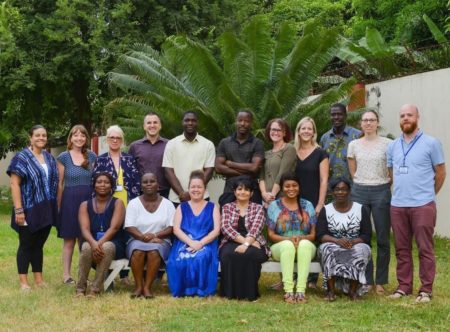
It is with gratitude and inspiration that I want to thank the BAIS staff and GTI facilitators for this outstanding conference. There will be more conferences of this type in the future, and I encourage all PCVs and Gambian educators to attend. Additionally, RPCVs with teaching qualifications are welcome to apply for positions at BAIS. There have been several former PCVs who have taught at BAIS in the past.
